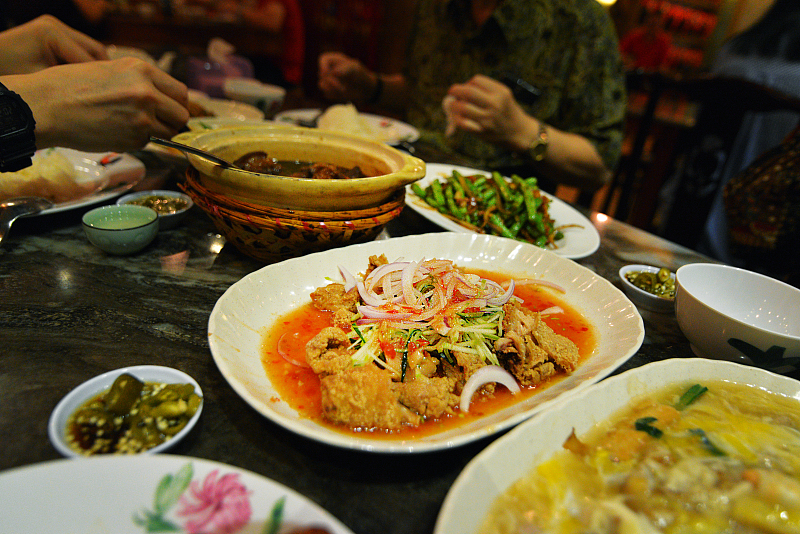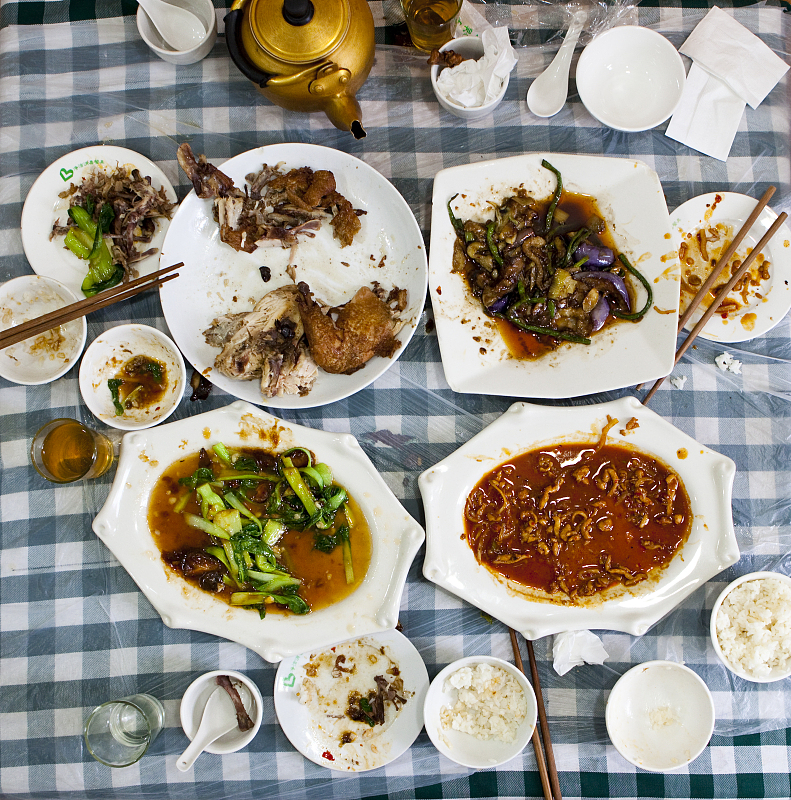More than 80 percent of roughly 2,000 respondents said they are aware of food waste issues, and more than 84 percent of the Gen-Z group made it clear they were eager to reduce food waste, according to a recent poll conducted by China Youth Daily.
Additionally, attitudes about young people towards food waste varied. About 50 percent of survey respondents thought that young people were aware of the issue, while 23 percent thought otherwise. Specifically, respondents in second-tier Chinese cities said young people there are aware of food waste issues.
29:36

Saving food as a habit
"When I was young, my grandparents would scold me if I left food on my plate. Their generation had gone through tough times living in poverty, so they cannot accept that people don't cherish food," said Wang Feng, who works in Beijing. Influenced by his grandparents, Wang says food waste is still not a big issue among some of his friends. "It's not about being rich or poor, it's a way of life. Personally, I ask my friends how much they can have when we eat outside. Usually, everyone will eat the food, and people feel no pressure to bring any leftovers home."
"I always take the leftovers home if we eat out," said Zhou Xiao, who also lives in Beijing with her husband. With their busy lives in cities, Zhou added that she spends less time cooking and orders out more often. Half-serve orders, which have gained popularity on delivery apps, offer people like Zhou the option to reduce food waste without worrying about the portion size.
There is also a growing trend among Chinese people to serve fewer dishes at weddings and birthday banquets to reduce waste. While big portions used to be a social indicator, some are trying to cut down on the food waste. "Though some old relatives cannot understand it since they believe it's about 'face,' me and my wife agreed to cut the size and amount of our wedding dishes. It's heartbreaking to see all the untouched leftovers get thrown away," said Hailu Wang, a groom-to-be in Shanghai.

It is a trend for young people to cut the size and amount of wedding dishes in China. /VCG
It is a trend for young people to cut the size and amount of wedding dishes in China. /VCG
Campaigns to reduce food waste
Many young Chinese were born and raised in cities, with very little awareness of how food is grown and where it comes from. So food waste campaigns have focused on cultivating healthy habits.
Popular Chinese video apps like Douyin and Kuaishou display reminders like, "don't waste food" and "please develop healthy eating habits" when users search for "food-eating livestream" or "competitive eaters." Both are popular types of videos featuring people eating an excessive amount of food, and have since been a place for campaigns focused on food waste.
"Every time I make a food video at a restaurant, I will be offered a table full of dishes which is obviously too much for me. So I always pack up the leftovers after work," said Li Jiyun, who started posting food videos on Douyin in January.
"I got this habit in childhood, and I feel it would be a great waste if I just throw the food away after shooting," he added.

Last week, Meituan, a giant online food ordering platform, co-published a proposal with a number of business organizations, including the China General Chamber of Commerce and China Cuisine Association, calling on restaurants to stop food waste and help cultivate new eating habits for customers.
Following the proposal, merchants are asked to offer guidance for consumers, including reminding them during the ordering process about the taste of the ingredients, portion sizes and other information about the dishes, to help them avoid excessive ordering and food waste.
Food waste in catering is incredibly huge. Chinese catering associations in more than 18 provinces have also joined the campaign to eliminate food waste. China Cuisine Association announced that it had teamed up with Ele.me, the Alibaba Group Holding-owned food delivery platform, to launch a "half-dish plan," encouraging restaurants to provide customers with the option to order smaller portions.
A sustainable way
Tang Zhisong, a professor at Southwest University Education School, said that there could be multiple positive influences via anti-food-waste campaigns. "Evaluating how much you can eat, how much you should buy and how to deal with the leftover is a way for young people to improve their self-management. It's also a means to teach them sharing food, caring about others, and more importantly, developing a mindset of suitability," said Tang.